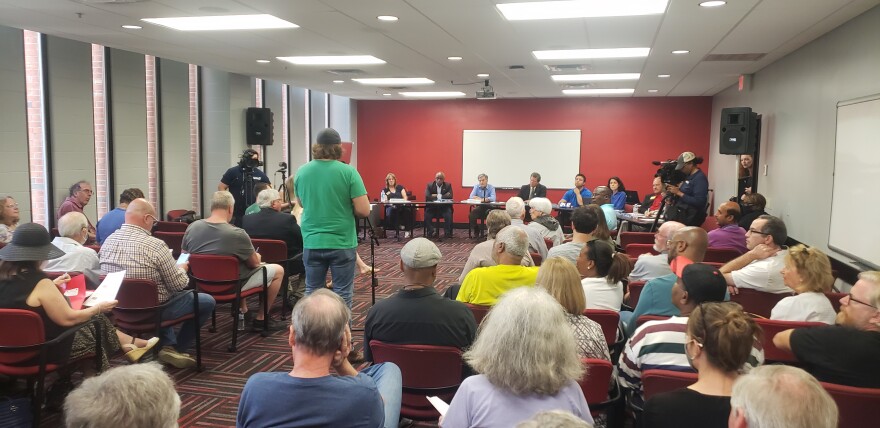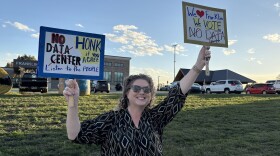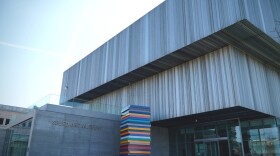Citizens called for Louisville to use federal coronavirus relief money to house the homeless, build urban grocery stores, fight gentrification and clean up the city during a public comment session on Saturday.
The hearing was the first of three sessions for public comment on how Louisville Metro Council should use about $340 million of American Rescue Plan funding.
The city already set aside $32.5 million of ARPA funds last month for vaccination outreach, economic recovery, tourism and increased policing.
During the session before the Metro Council Budget Committee, citizens were given four minutes to make their pitch for how the city should use the money.
Marilyn A. Boyd gave a long list of projects she wants the city to fund, including mental health services, youth homelessness prevention, social workers, food security and better jail conditions.
“I don’t think they should dump it all in one or two things; it needs to be spread out,” Boyd said.
Officials will hold two more two-hour public comment hearings—on July 19 and July 26.
Donny Greene, co-founder of non-profit Feed Louisville, proposed using the money to house 1,500 people.
He said $38 million could pay for rent in currently available apartments and wraparound services like mental health treatment, bus passes and groceries.
“The city needs to make a bold step forward and end what is a humanitarian crisis here,” Greene said.
The $1.9 trillion American Rescue Plan Act passed Congress and was signed into law by President Joe Biden in March. It provided $1,400 stimulus checks to individuals, expanded the child tax credit and subsidized coronavirus testing and vaccine programs.
It also provided about $360 billion for state and local governments to respond to the pandemic, boost pay for frontline workers, make infrastructure investments and provide government services.
Kentucky's state government received about $2.4 billion and city and county governments received about $1.6 billion.
After the meeting, Okolona resident Johnetta Matthews said the city needs to invest more in poor and middle-class neighborhoods.
“I think the money should go in communities, help people build more grocery stores, clean up the area. We need a lot of help,” Matthews said.
She said she’d like to see some of the money go to programs for young people in poor neighborhoods.
“The middle-person, or the bottom of the barrel person, we like nice things too,” Matthews said.
The final two public comment sessions will take place:
Monday, July 19, 6:30 - 8:30 p.m., Southwest Regional Library, 9725 Dixie Highway
Monday, July 26, 6 - 8 p.m., West Broadway Church of Christ, 3921 West Broadway





